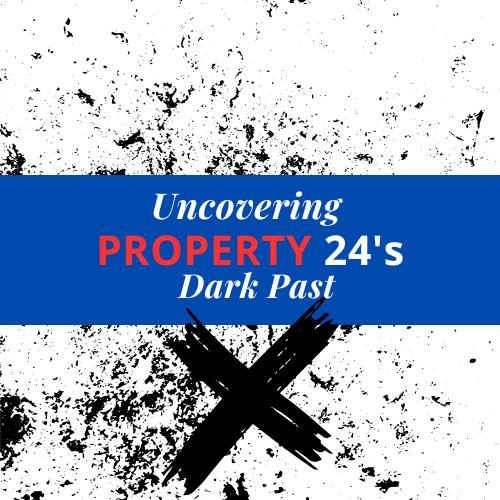A Legacy of Apartheid and Corporate Controversy
The Roots of Power: A Media Empire’s Early Beginnings
In the heart of South Africa’s evolving media landscape, the roots of Property24 stretch deep into a history intertwined with the country’s shifting political and economic tides. The story begins in 1915, when Die Nasionale Pers was established as a news media company with the backing of influential South African politicians, including Jan Smuts, Louis Botha, and J.B.M. Hertzog. The publication quickly became a powerful voice in the nation, shaping public opinion and politics for decades to come.
A Complex Legacy: Die Nasionale Pers and Apartheid
As South Africa underwent profound changes throughout the 20th century, so too did Die Nasionale Pers. The company played a significant role in supporting the National Party (NP), which governed under the system of apartheid. In 1984, the NP itself held 74,000 shares in Die Nasionale Pers, reflecting a deep and symbiotic relationship between media and state power. During the Truth and Reconciliation Commission (TRC) hearings in 1997, the company refused to make an institutional submission regarding its role during apartheid, though 127 individual employees stepped forward to acknowledge and apologize for their part in upholding the regime. A formal, unqualified apology from the company itself never came.
Transformation and Expansion: The Rise of Naspers
Amidst this complex legacy, Die Nasionale Pers underwent a transformation, rebranding itself as Naspers and expanding beyond print media into digital platforms. It became one of South Africa’s most influential multinational corporations, adapting to the rise of the internet and technology-driven industries. A key figure in this transformation was Koos Bekker, who played a pivotal role in steering Naspers into the digital age. Under his leadership, Naspers aggressively pursued opportunities in online platforms, investing in companies like Tencent and expanding its reach into various global digital markets. Through Naspers, the foundations of Property24 were established.
The Birth of Property24: A Dominant Force in Online Real Estate
In the early 2000s, Property24 emerged as an online property portal within Naspers’ expanding digital portfolio. Leveraging the company’s vast media and technology network, it quickly gained market dominance in South Africa.
Global Ambitions and Controversy: Naspers’ International Expansions
However, Naspers’ ambitions extended far beyond local real estate listings. Through its international arm, Prosus, the company acquired stakes in various European real estate portals and classifieds platforms, solidifying its influence in global online marketplaces.
Ethical Concerns and Regulatory Scrutiny: Naspers’ Recent Challenges
Naspers and its subsidiaries, however, have been no strangers to controversy. When Russia invaded Ukraine in 2022, many multinational corporations swiftly pulled out of Russia in protest. Prosus, however, was slow to disengage and maintained its stake in Avito, a classified advertising platform used by the Russian military for recruitment purposes. This raised ethical concerns about the company’s responsibilities during times of geopolitical conflict.
Further scrutiny emerged in early 2025 when Naspers suffered an 11% share price crash following the inclusion of Tencent, in which it holds a 26% stake via Prosus, on a US Department of Defense “military blacklist.” This event underscored the risks tied to Naspers’ deep financial entanglements with Chinese tech giants and the company’s vulnerability to global regulatory shifts.
Another controversy linked to Naspers involved its subsidiary MultiChoice, a dominant force in South African pay television. In 2017, it was reported that MultiChoice had made payments totaling R25 million to ANN7, a news channel owned at the time by the Guptas’ Oakbay Investments, and had tripled its annual payment to ANN7 from R50 million to R141 million. This raised concerns about undue influence and financial support for a politically connected media outlet. MultiChoice defended these payments as a means of fostering diversity in broadcasting, but the explanation failed to allay public suspicion.
A Critical Examination: What Does This Mean for the Real Estate Industry?
For the real estate industry, these revelations prompt a critical question: Who and what are property professionals actually supporting when they engage with platforms like Property24? With its origins in a media company that actively supported apartheid, its continued financial ties to ethically contentious investments, and its positioning within a multinational conglomerate shaped by corporate and geopolitical interests, Property24 is far more than just a neutral marketplace for real estate transactions. Industry stakeholders must consider the broader implications of their reliance on such platforms and whether their business decisions align with ethical and financial accountability in an increasingly complex global economy.






